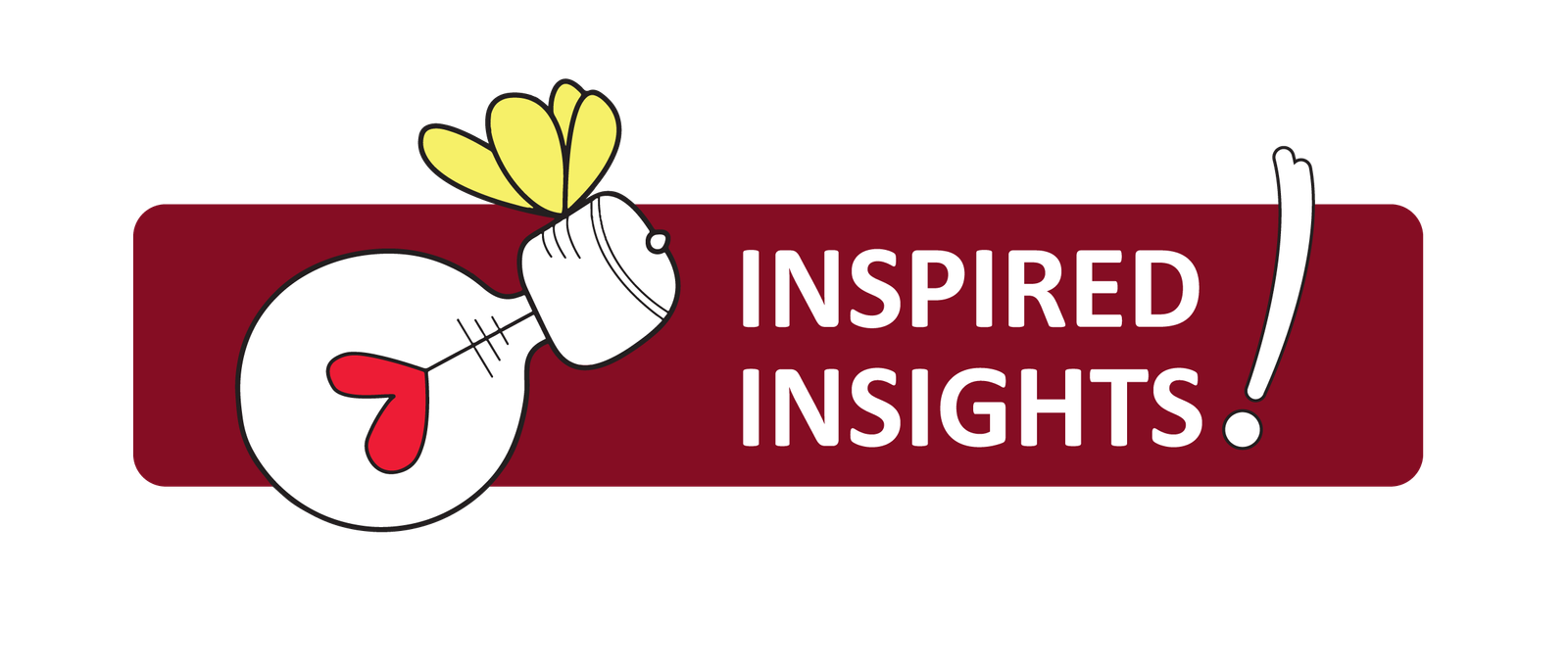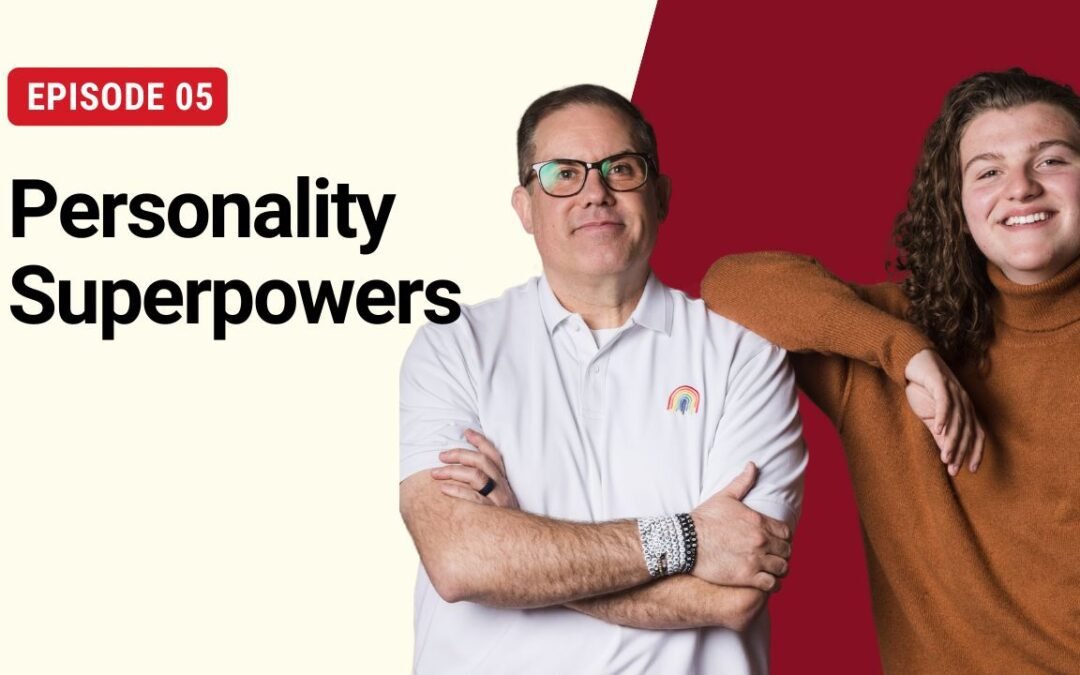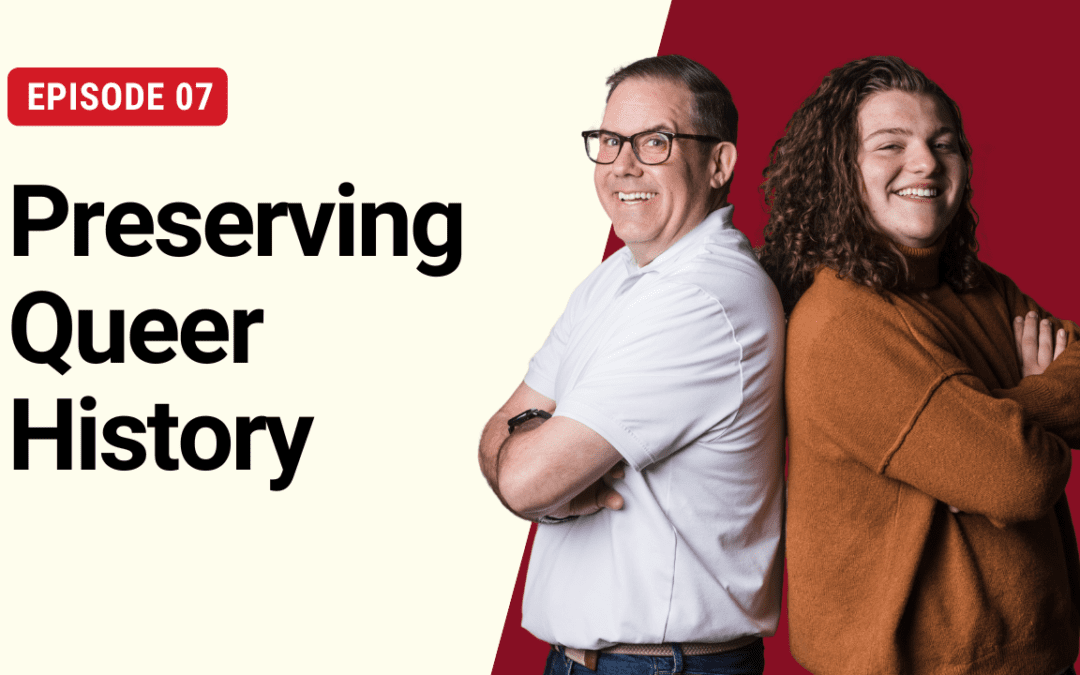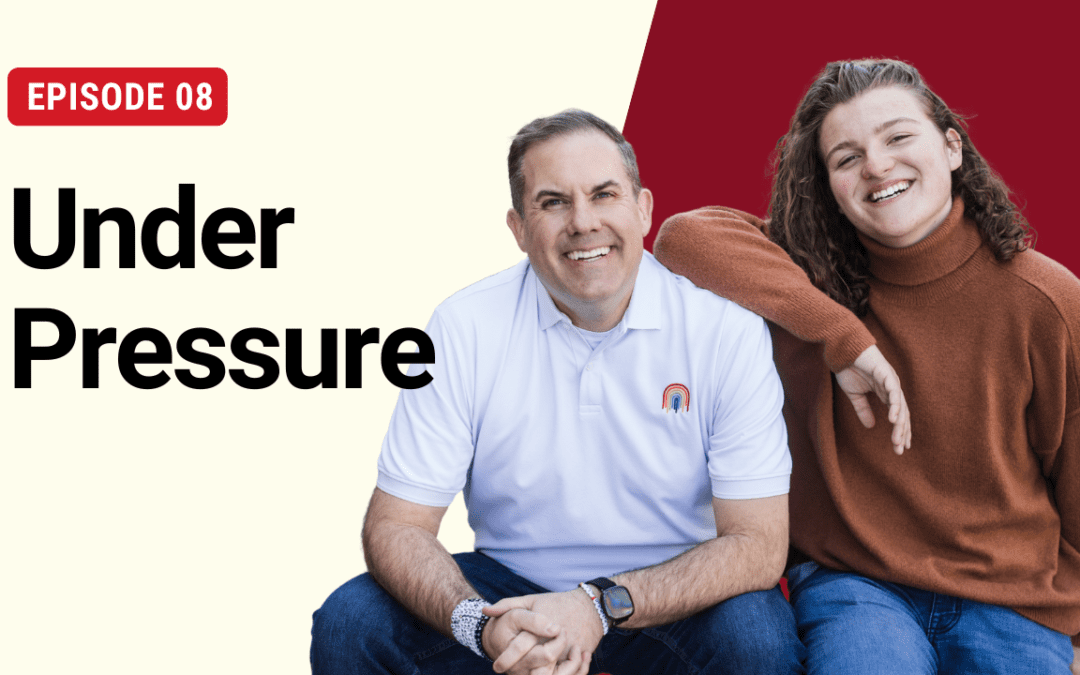Episode 4
WERK!
S02 - Episode 4
November 23, 2024
32 mins & 41 secs
Speakers
Chris McLaughlin
Soren Peterson
About
Dive into the evolving perspectives on work across different generations. This discussion highlights how attitudes towards careers, workplace culture, and work-life balance have shifted over time. Chris and Soren share their perspectives and find some interesting differences in their perceptions of work and how their expectations and experiences in the workplace have made them who they are today.
https://www.youtube.com/@InspiredInsightsPodcast
inspiredinsights@inspiredcg.com
*Please note that this episode contains sensitive behavioral health topics such as suicide and substance use. If you are experiencing a behavioral health crisis, please contact the 988 Suicide & Crisis Lifeline by calling 988 or visiting www.988lifeline.org.
**This podcast is for information and entertainment purposes only and should not be considered health advice. This podcast is not intended to replace professional medical advice.
Transcript
Chris:
The Inspired Insights podcast is for informational and entertainment purposes only and should not be considered health advice. This podcast is not intended to replace professional medical advice.
Soren:
Please note that this podcast may contain discussions on sensitive topics such as mental illness, suicide, and substance use. If you are experiencing a behavior health crisis or need support, please contact the 988 Suicide and Crisis Lifeline by calling 988 or visiting www.988lifeline.org
Chris:
Soren, welcome back to the Inspired Insights podcast.
Soren:
Yippee!
Chris:
I love that that’s turning into your signature greeting.
Soren:
Oh, I say yippee constantly.
Chris:
We have to like hashtag yippee. All of our new merch, our Inspired Insights merch, will have yippee on it. Say it again.
Soren:
Yippee!
Chris:
Yeah, we’ll have to figure out how you want to spell that and we’ll start branding some like trucker hats and t-shirts.
Soren:
Trucker hats.
Chris:
I love a trucker hat. The high, the high, the height off the forehead. I love a trucker hat.
Soren:
You know what? Good for you.
Chris:
Is that a no thank you? No trucker hats branded with yippee?
Soren:
Uh, anything that you want to do, go for it. You’re a full-grown adult. Just know I won’t be wearing one.
Chris:
Oh, what would you wear? A sweatshirt? That hoodie that says yippee on the back?
Soren:
Uh, yeah, like a saucy crop top. None of that.
Chris:
I would totally get you a saucy crop top.
Soren:
Uh, no, I think a hoodie with yippee on it would be cute all right
Chris:
Good to know. Welcome back everyone for another episode of the Inspired Insights podcast. Soren, how is your summer going?
Soren:
Um, it’s going wonderfully. I got a job. I’ve been working in the dish pit.
Chris:
Yeah.
Soren:
Doing the rhyme.
Chris:
This is not your first, I know, I personally know for a fact this is not your first job, but this seems to be, like, um, your first job that you’re kind of serious about. Like, you’re getting a lot of hours, you’re putting in the time, you’re making the bank.
Soren:
Uh, yeah, I’m putting equivalent hours in, but I’m definitely more invested in this job, uh, because my old job I saw as just a very temporary summer gig.
Chris:
Yeah, we will not mention names, but knowing some of the stories, both from you and your mom, it was not an environment that was good for you. Um, which actually brings me to my Inspired Insight of the Week. So my Inspired Insight of the Week is, uh, one of my, uh, mantras that I have formed over my career, and it essentially goes like this.
You are not going to be able to change the toxic workplace that you’re a part of, yet that toxic workplace is more likely to change you.
Soren:
Um, I really like that quote, and when I thought of it, it made me think of toxic relationships. We can’t change the people that we’re in a toxic relationship with, but they will change us.
Chris:
Yeah.
Soren:
Um, and I think that that marks, like, that is very emblematic of the way, um, older people view their jobs. They’re in a relationship with a corporation, uh, whereas I see corporations as sort of, or even companies as soulless entities that give me a paycheck for X amount of work.
Chris:
Yeah. Oh, we’re going to get into it today. Today’s episode is all about some, um, generational perspectives on work and working.
Um, remind me what your inspired insight of the week is.
Soren:
Uh, my inspired insight I yielded from, uh, playing a considerable amount of Minecraft, uh, and that is I love the illusion of progress.
Chris:
Mm.
Soren:
I love to think that I’m doing something when really I’m doing nothing.
Chris:
Yeah. Yeah. Tell me more about that.
Tell me more about that in conjunction with how you, I won’t even have you speak for your generation yet, we’ll get there, but about how you view your relationship to work.
Soren:
Um, my relationship with work, like, I don’t get invested in a venture that I’m, like, gaining finances out of to some extent. Like, I see work as a necessary evil, um, rather than something that I, like, am invested in and I gain some of my personality and identity from. Uh, whereas, like, I see my parents specifically, like, fall into a toxic relationship with work and it consumes them, right?
And they care so much about the, uh, business outcomes. And I feel like it’s foolish to care about the business outcomes unless they directly financially impact you. In which case, put the minimum amount of effort necessary to succeed.
Chris:
Now let me ask you this.
Is this, um, World According to Sorin or, and, or, do you think you are representing, um, other Gen Zers?
Soren:
I think broadly, Gen Z gives fewer, uh, craps and cares considerably less about the, like, financial prosperity of the business that they are working for, uh, or the quality of their work unless it impacts their pay. Yeah.
Chris:
I think that was one of my questions for you as we were kind of prepping for today’s topic. Um, and I’m, and I want to have this conversation as respectfully as possible. That’s one of my goals going into this conversation.
Because you and I, I think our listeners are going to learn, you and I think very differently, um, about this, this topic. And I, I wonder when you are, what did you call it, in the dish pit? Um, when you are in the dish pit at 17 years old, for that local establishment, that is a mission critical job.
So they view that role incredibly important for the workflows of the way that they do business.
Soren:
Yeah.
Chris:
But when you’re washing dishes for six, eight, ten hours shifts, it can’t feel like you are contributing to the benefits of society.
Soren:
I, I understand the utility, uh, of my position. But at the same time, like working for a restaurant, restaurants are non-essential. They are like frivolous venues.
Um, and I, like, I don’t want to, with my job, be getting the fulfillment of feeling like I’m contributing to society. That’s not something that I’m searching for in my job, because I feel like that creates unhealthy relationships with, uh, work. Uh, and also, uh, I don’t feel like I’m doing anything, like, that important.
Obviously, like, my job completion and efficiency is pertinent to the function of the restaurant. Uh, but I just show up. I do, uh, exemplary work, admittedly.
Um, and leave.
Chris:
And you, and this, and you think this is, um, somewhat common around, with people your age?
Soren:
I think totally. And I think people my age vilify corporations far more than older people do. So when working for corporations, at least I myself feel like I’m working for the enemy.
And it’s my job to be a saboteur.
Chris:
You are an incredibly hard worker. Like, this is not indicative of you doing a poor job. Like, you are somebody in your workplace.
You are meeting the standard. You, those dishes are clean. They are, infection prevention is well.
Soren:
Yes. I deliver, I would say, beyond the standard and are more vigilant because I realize that people are going to be eating off these things. And I need to be very careful about that.
Chris:
You do a bang-up job at a job that you don’t necessarily see as defining who you are.
Soren:
Yeah, yeah.
Chris:
So your parents and I are of similar generations, obviously.
And it’s such a fascinating conversation because I knew what I wanted to do. I didn’t know the name for it, but I knew what I wanted to do at a very, I would say, early on. And it was very common for folks of my generation.
I was asked, what do you want to be when you grow up? Constantly. And felt this pressure as young as middle school to start moving my academic career into a pathway, a glide path, to get to where I wanted to eventually get.
And I didn’t call it social work when I was in middle school or high school. I called it psychology, right? I wanted to be Jodie Foster in Silence of the Lambs.
Like, I wanted to do that caliber of work. And then eventually put a name to it and realized I had choices and options of different pathways. I could get my medical degree.
I could get a master’s in this. Or I could get a master’s in that and chose the master’s in social work for me. But always knew.
Always knew what I wanted to be doing. And I am somebody who, I am a workaholic. And work defines me.
I admittedly don’t have always the best relationship with the workplace. I am somebody who has absolutely experienced burnout. I am somebody who absolutely has experienced compassion fatigue, which is a phenomenon really, I think, prone in helping health care service providers.
I don’t have the best sense of work-life balance or work-life integration. So I think you and I are coming to this topic from really diametrically opposed perspectives. Yeah, I’m somebody that 60, 70, 75 hours a week is very common.
And the look on your face right now is perfect. It is the perfect meme for this topic.
Soren:
Yeah, I think a lot of my perspectives about work-life balance and the way a corporate job is viewed is informed by my parents’ relationship with their works.
Chris:
Like, I don’t want to be that person.
Soren:
Yeah, I don’t.
Because, like, my father is in fairly high-level positions. And I watch him take home his job. Well, he works from home, A.
And B, he was stressed 24-7 as a result of the company that he has put so much effort into, like, failing or something of that nature. And I, like, he was tied to the idea of a corporation. And I feel like corporations are simply schema and empty and hollow.
And tying so much of your emotional state to the function of a company, if it’s not going to directly financially impact you, is absurd.
Chris:
Well, you drew the parallel, which I think is a really good one, at the start of our conversation today about toxic workplaces and toxic relationships.
Soren:
Yeah.
Chris:
And some of us, and I think your dad is one of those folks.
I think I have been one of these type folks. I’m learning differently. But you made the comment about, like, I can change them about a toxic relationship.
Soren:
Yeah, yeah.
Chris:
And so those of us that I think have really, I will just say, unhealthy relationships to the workplace, we think we can fix it. We think we’re the only one that is capable or has the ability to make this place better, not just for us, but for all the employees scattered across the country.
Soren:
I don’t even understand the want to fix it. If it’s not in your job description, you don’t have to be doing it. Jobs are about financial contribution or rather financial incentive rather than personal incentive.
Chris:
What if you are working at a job and you, because I truly think that I am, I don’t love this word, but I’m going to use it. I think I am blessed to be able to do a job, even for 60, 70 hours a week, that I truly am passionate about. And it’s not the person I’m doing it for.
It’s not the corporation that I’m working for. It’s the work that I get to do. I get to do, every single day, I get to do something I’m passionate about.
Now, there will always be tasks that I hate doing. There’s always the inbox is too full, the phone messages to return are too many, the timesheets to approve. There’s always tasks of the job that I’m going to hate or like less than others.
But at the end of the day, when I am practicing social work, I get to do something I’m passionate about. Can you imagine there being a time for you in your future where every day you’re punching into a corporation? But once you’re punched in, the work you’re doing is work that you feel so deeply connected to.
Soren:
I can totally foresee that. I want to go into bioengineering, specifically genetic engineering. And I think that the work that can be done in that space is some of the most impactful work that you can do, period.
And I think I will be connected to the things that I’m creating, especially in academia. You are, to some extent, self-reliant and working as a contract worker for a given university or company or research organization, so on and so forth. And I can see myself being connected to that work.
But at the same time, I will always have in the back of my mind, it’s just a job. Whereas my father and my mother do jobs as a lifestyle and part of their identity.
Chris:
100%.
Soren:
I do. And they do. I think it’s important to be fulfilled by your job and pursue a job that is valuable to you.
But also, don’t allow your job to be the only value in your life or trump over other values.
Chris:
Do you think that’s about a personal boundary that your parents and I maybe lack?
Soren:
I think by the nature of corporations, a corporation runs better when all the employees are all in and care very deeply about the success of that corporation. But I think that that is the corporate structure intentionally being optimized to take advantage of employees through their emotions. And I think it’s exploitative to some extent.
Chris:
Yes, yes. I agree with that. And your parents and I have been very fortunate in our careers to experience significant financial gain and significant promotion in title and scope and role.
And I would also offer that your parents, and I’ll even pat myself on the back a little bit, we’re highly capable at the jobs that we work in. And therefore, we’ve enjoyed significant reward, both reputation, like I’m somebody that also works as hard for my reputation as I do my paycheck.
Soren:
Yeah.
Chris:
And so, I wonder if by definition, corporations are wired this way to exploit high performers, what is going to happen when millions of Gen Zers enter the workplace with this very different set of boundaries? The ability or the desire to just punch in and punch out, this is just a job. If it’s not my job description, I’m not doing anything more.
What do you think is going to happen?
Soren:
I don’t know. I think those people that are willing to get invested and have an unhealthy relationship with their career will succeed even faster than they were in your generation. And I think that a lot of other Gen Zers will do the work that they’re assigned.
They will engage with their job to the extent that is necessary. And then they’ll leave and it will be fine. Companies will make less profit margin.
I idealistically hope for the day where there will be no companies and instead, I really like classical Marxism as an idea. I don’t think it’s functional given humans’ current neurochemistry. But if such neurochemistry was altered, it could be highly effective.
Chris:
Which is the job you’re hoping to do someday.
Soren:
Exactly.
But that’s very radical. That gets into my more intensive ideas. Yeah, we’re going to get some hate mail.
I hope that people will place more emphasis on the value they get from their hobbies and the other things that they enjoy, rather than the value that they get from their workplace.
Chris:
You travel a lot. You and your family travel a lot and you love experiencing other cultures. When I hear about some of the advancements that are happening in places in Europe right now around the four-day week, sort of a rejection of this idea of salary and staff, a rejection of the five-day work week, a rejection of the eight-to-five carve-out of the professional world.
I pine for those days. So as much as of a workaholic, I admittedly am, I love the idea of corporate structures changing to allow for better balance, to allow for time for joy and hobbies and time with families. One of your mom and I’s very good friends just had her second child not too long ago, earlier this year.
And this whole idea of being a working mom in today’s corporate culture is a podcast episode in and of itself. I don’t know if either of us are… I’m not an expert in working moms.
However, as somebody who’s been in positions of leadership for most of my social work career, I am a strong advocate for how do we adjust the workplace to accommodate for more diverse needs, including the needs of working moms. And it’s been a struggle of mine, admittedly. When there are pressures north of me on the hierarchical chain of the workplace to perform harder, to get more done, to increase revenue, to decrease expenses, the biggest expense to organizations is the staff, is the human resources of that organization.
And so it is really a Herculean task to appease folks north to meet those financial goals and pressures, especially in a post-COVID economy, and address the needs of the folks south of me who are struggling, who aren’t compensated what I think they should be or could be, and who are managing workplace… the needs of the workplace accommodation. It’s not a sustainable environment we have right now, to your points around what corporations expect.
Soren:
I think a lot of people in my generation as well, looking at CEO pay, looking at the pay of executives, CEO pay fairly regularly is between 10 and 70 times the average pay of a person on staff. So by working at that given corporation for the pay that you’re working for, all of the surplus of your work is going directly to a singular individual or a very small group of individuals. So I like to think of working for a corporation as not working for the bull statement of the corporation or the people that the corporation is providing value to, but you’re working for a very small group of elite executives that are taking advantage of your work in order to enrich themselves.
You’re feeding the bourgeoisie your effort and seeing very few of them returns.
Chris:
It is enough to make you sick to your stomach to see that, and there’s just something about how the generations are wired differently. I can be both disgusted by it and define myself still by the work I’m doing and want to do better, want to do more, and want to continue to build my professional brand.
Soren:
Capitalism operates on the same principles that evolution does, and what survives is what works best. And now we’ve reached a point where corporations over generations of corporations have become optimized to extract the maximum amount of work out of individuals on the bottom for minimum amount of pay. And corporate culture has been optimized to do that because it’s beneficial for the corporation itself.
Chris:
And I think knowing, again, your dad and your mom and I have kind of similar career trajectories and career stories, at some point the pellet that comes out of the corporate machine that we gobble up, at some point we go, wait a second, I don’t want that pellet anymore. I can leverage my talent and passion for other benefits, not necessarily the capitalistic corporate greed benefit. And those of us that can do that, I also recognize you and I talk about privilege so much on this podcast because it’s such an important umbrella overarching a lot of our lived experiences here.
I have the privilege to be able to walk away from corporate structures and become self-employed or change jobs. I know that the vast majority of American workers don’t have that ability to simply just pack their bag and go home and not show up the next day.
Soren:
But at the same time, we’re seeing an increasing amount of benefit from job hopping every few years, right, for increased pay. That’s right. It used to be you stay in a job your entire career so that you get pension, but now there’s no pension and there’s limited benefits to staying in a specific company.
And I think that is already an impact that we’re seeing with people being less emotionally tied to their company or job. Like when you asked looking towards the future, I think that’s going to increase in prevalence and companies are going to need to find a way to decrease turnover.
Chris:
Yeah, and I think some of it is the nature of the work itself. So if I were to social worker, and I’m going to use just a silly analogy, if I made cell phone chips, if my job and my skill and my talent is making cell phone chips, I could pick that job and talent and take it anywhere, right? And so I’m going to choose to work for the corporation that has the benefits that appeal to me most, whether it’s pay, whether it’s time off, whether it’s work environment, whether it’s shifts or hours, whether it’s insurance costs, whatever is most important to me, I can take that talent and take it anywhere.
For some of us, we work in a field where it’s less tangible, like the product that we’re churning out isn’t as tangible as like a cell phone chip. And so it’s harder to measure how we can take those jobs, take our talents and move it around to the place that fits us best.
Soren:
And I think overall, people are frustrated, they’re angry, and they think that the system as it is right now is no longer beneficial to the vast majority of individuals that engage with it.
Chris:
Yeah. And I think what I know, and you I know actually know more about this than I do, in the history of our country, we have seen this kind of roller coaster of the people’s movement and change happens, right? And so a lot of what we see in today’s modern society is the result of movements from generations and generations past.
And perhaps to your point, we are seeing the beginnings of a new movement of younger people kind of putting fists to table and saying, this isn’t going to work for us.
Soren:
In the late 1800s of the U.S., the vast majority of the economy was controlled by very few monopolies, and they essentially oppressed the workforce so that people were fighting for jobs.
financially drowning while a small class of aristocrats was becoming obscenely wealthy. We think about families like the Rockefellers and financial organizations like J.P. Morgan, stuff like that, like Standard Oil, so on and so forth. And then all of, I like to think of it as an economic reset that happened over a number of decades, starting with Teddy Roosevelt coming into office after, I believe, Garfield was assassinated, and he did a good bit of trust busting.
And then his economic momentum was continued by FDR. And we saw a capitalist reset in the U.S. because it was no longer functional for workers. And that bred a, along with World War II, bred a massive amount of prosperity for the U.S. And now we’ve started to see our economy go back into a monopolization phase where workers are being oppressed regularly. Obviously now it’s more corporate oligarchies because we still do have a considerable amount of antitrust law.
But I was talking at a CISB camp the other day with a guy that works as a lawyer for a trust fund, or hedge fund rather, and he was saying that the FCC is scared to regulate large tech companies because they have less power than them. And we need to create change.
Chris:
Yeah, and I think change, the lesson I’m gathering from this history lesson is that change comes from the people from the ground forward. I think we are at the precipice of more change. I think today’s episode has been a really great discussion on how the generational, the different voices of our generations can come together.
And I hope, I hope bring some change. I think millions of lives depend on it. And I’m tired.
I’d like to just rest a little bit more, right? And I realize I’m responsible. I’m responsible for my own relationship in the workplace.
Soren, this has been a fascinating conversation. Do you know a lot about this stuff?
Soren:
I really like the idea of extreme economic reform, and I read into it a considerable amount. With that said, I’m now a columnist.
Chris:
Yeah, well, we’d love to hear from our listeners too. So yeah, please feel free to reach out. You can reach Soren and I at inspiredinsights at inspiredcg.com.
Until next time, I’m Chris McLaughlin.
Soren:
I’m Soren Peterson.
Chris:
Thanks for listening.
Soren:
Thank you so much. See you next week.
Inspired Insights podcast has been brought to you by Inspired Consulting Group, LLC.
Edited and produced by Amanda Seidel and Derek Herter. Marketing support for the Inspired Insights podcast by Elizabeth Keenan, music by Derek Herter. Please visit www.inspiredcg.com to learn more. Copyright 2024. All rights reserved.
Show More

All Episodes

S3E1: Welcome Back
Welcome back to the Inspired Insights Podcast for the very first episode of Season Three! Join hosts Chris and Soren as they dive into a heartfelt conversation about the evolving world around us–and within us.

S3E2: Finding Our Voices: Advocacy in a Changing World
Chris and Soren sit down with seasoned lobbyist and tireless human rights advocate, Charlotte Warren, to explore the power—and the personal cost—of advocacy in today’s shifting political landscape.

S3E3: Choosing Joy, Finding Gratitude
Chris and Soren unpack how reframing our thoughts can change the way we experience the world—from the inside out.

S3E4: The Power of Storytelling
Chris and Soren sit down with Authenticity Coach and Author Suzanne Carver to explore how sharing your story—and embracing who you truly are—can open doors to healing and transformation.

S3E5: Personality Superpowers
In this episode, Soren and Chris explore their Myers-Briggs personality types and how trauma and lived experience have influenced how they show up in the world.

S3E6: The Power of Pride
Together, they explore the deeper meaning behind Pride celebrations—why they matter, how they foster connection and visibility, and what it really takes to bring a community-wide event like this to life.

S3E7: Preserving Queer History
Soren and Chris sit down with special guests Sam and Emma to explore the vital importance of preserving queer history through storytelling and community memory.

S3E8: Under Pressure
What happens when we let teens speak for themselves? In this candid and eye-opening episode, Soren and Chris hand the mic to two remarkable young adults—Sophie and Bennet
